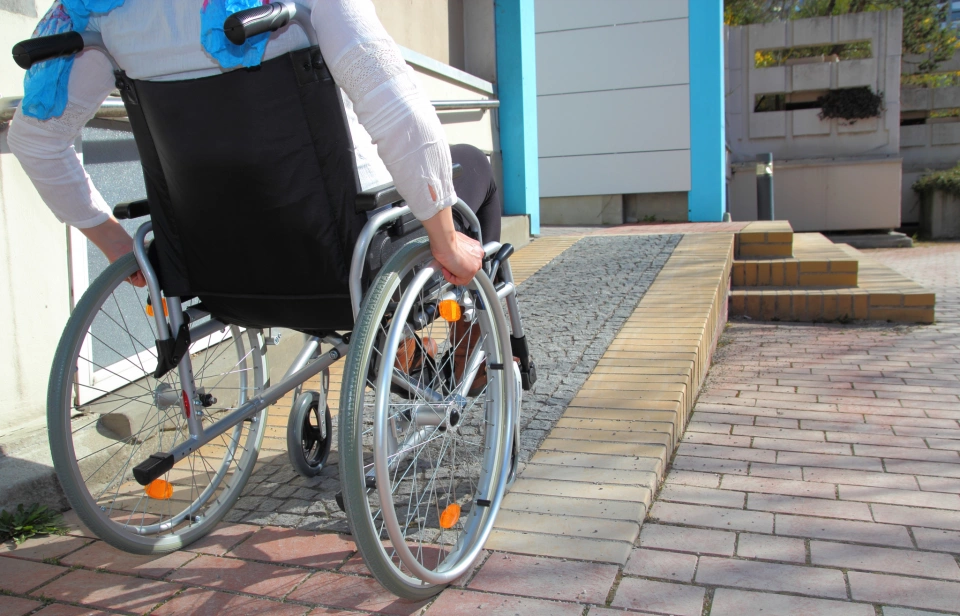Five things to know about TPD eligibility and the TPD claims process.
Published on Sunday 11 April, 2021 by Tim Downie
Most Superannuation funds offer their members default Total and Permanent Disability Insurance. But what is TPD superannuation insurance? Keep reading to find out all about TPD eligibility, the TPD claims process, and more.
Have you been injured at work and looking for information on making a claim from Total and Permanent Disability Insurance? Perhaps someone’s suggested that you may have TPD cover in your super.
TPD eligibility can be difficult to assess, so we recommend you seek the advice of an experienced TPD lawyer to help with the TPD claims process. We offer a free initial consultation and, in most cases, we won’t charge you legal fees unless we win your claim. So if you need advice about a Total and Permanent Disability claim, or just want to have an initial conversation about your options, Johnston Withers Lawyers is here to help.
Send us a message, or give us a call on (08) 8231 1110

What is TPD superannuation insurance?
Total and Permanent Disability (TPD) Insurance is a lump sum benefit you may be entitled to claim if you sustain an injury or illness that renders you unable to return to work.
Most superannuation funds offer their members default or automatic TPD benefits. These benefits can range from a few thousand dollars up to hundreds of thousands of dollars depending on the fund. Members can choose to apply to their fund to increase their cover, or to take out TPD cover in super if it’s not automatically offered.
Am I eligible to make a Total and Permanent Disability claim from my Super TPD insurance?
If you’ve been unable to work due to an injury or illness for the relevant waiting period (usually three to six months), and if your treating medical practitioners advise that you’re unlikely to return to any work within your education, training and experience, you may be entitled to claim from the TPD insurance in your super.
So what is a TPD? Every fund has a policy in place that details the relevant definition of TPD that a claim would be assessed under. The two most common definitions used by funds in relation to the most common TPD claims are:
Standard definition used in Total and Permanent Disability insurance assessments:
The member has ceased working as a result of injury or illness and after a period of three to six months and, based on supportive medical evidence, the worker is unlikely to be able to return to any work within their education, training and experience.
Retraining definition used in Total and Permanent Disability insurance assessments:
The member has ceased working as a result of injury or illness and after a period of usually three to six months and, based on supportive medical evidence, the worker is unlikely to be able to return to any work within their education, training and experience or any work that they may reasonably be able to retrain into. (i.e. if you’re able to undertake re-education or on-the-job training to enter into another field of employment you may not meet this definition).
There is usually a different definition and waiting period if you’ve been diagnosed with a terminal illness.
How do I make a claim from my TPD insurance in my super?
There are a number of forms and processes that need to be undertaken in order for a TPD claim to be lodged with a fund. Once the claim is lodged it can take a prolonged period of time (six to 12 months) before the insurer makes a determination on the claim. This can be very stressful and many clients find it much simpler to have a lawyer assist them with the TPD claim process and to liaise with the insurer on their behalf about their TPD eligibility and TPD claim.
Are you eligible for TPD or income protection?
“I’ve been injured and have to have time off work but hope to return. What can I do?”
This is an extremely common question that arises when people approach us for advice about their TPD eligibility. The majority of superannuation funds also offer income protection benefits for those who are injured at work but hope to return. These are usually a monthly benefit and can range from a few hundred dollars per month up to a few thousand dollars. The definitions, benefit limits and payment periods vary significantly between funds.
Many people choose to enlist the help of a superannuation lawyer in South Australia to help them with the TPD claims process, as it can be lengthy, complicated, and an added stress on top of what they’re already experiencing from their injury. To get started, contact Tim Downie on (08) 8231 1110, or send us a message.
The content of this article is intended to provide a general guide to the subject matter. Specialist advice should be sought about your specific circumstances.

Author
Tim Downie
Director
Found this helpful? Share it!
Read our news and ideas by Practice Area
- Aboriginal land rights
- Agricultural law
- Asbestos claims
- Car accident claims
- Commercial and property law
- Contested wills and estates
- Conveyancing
- Criminal law
- Defamation
- Divorce
- Employment law
- Estates
- Family law
- Injury claims
- International law
- Litigation and dispute resolution
- Public liability
- Renewable energy law
- Super TPD
- Wills and succession planning
- Workers' compensation
Related posts...
Your guide to workers’ compensation claims
If you or a loved one has been injured at work, it can be challenging to navigate a workers’ compensation claim – especially during recovery. Keep reading to learn about your legal rights and entitlements.